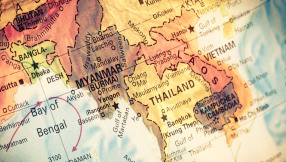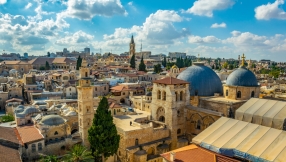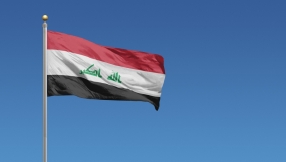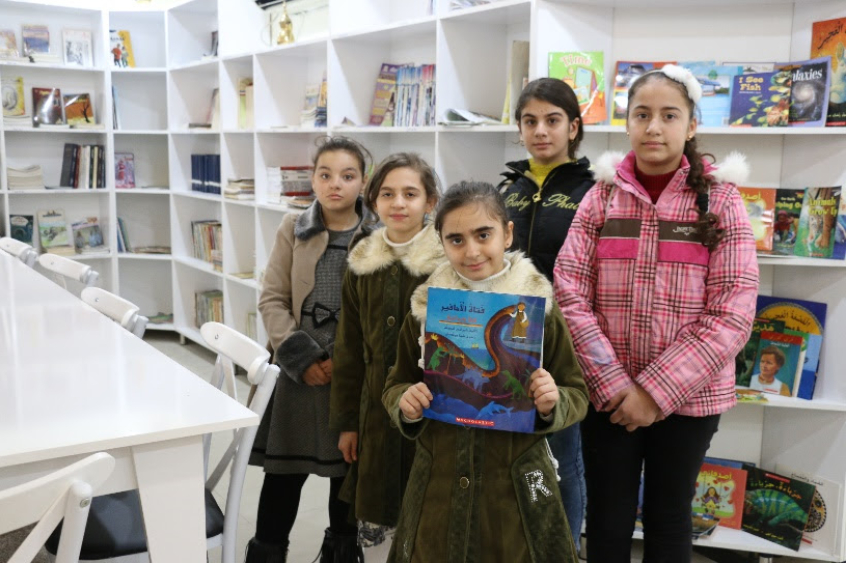
The residents of Qaraqosh, Iraq, can borrow books again from the reopened Christian library which was burnt and partially destroyed during the occupation of the town by so-called Islamic State.
Islamic State's invasion of the region forcefully displaced tens of thousands of Christian families. IS militants intentionally destroyed the villages and homes of thousands of Christians, as well as burning their churches and libraries.
When people returned to their hometown after its liberation, they found most of the library books burnt or stolen. First, with the help of church youth volunteers, dust and ashes were cleaned off the surviving books. People were eager to bring life back to the library and create a cultural and educational hub there.
Under the supervision of Fr Duraid of the Syriac Catholic Church in Qaraqosh and with the financial support of Open Doors' local partner organisation, the reconstruction of the library was completed within two months and it opened its doors to visitors again. Fr Duraid said: "It rose from the black ruins and demolition debris to a cultural centre. We dream that it will be a space where intellectuals, students, authors, poets and other readers from our village can meet or do research."
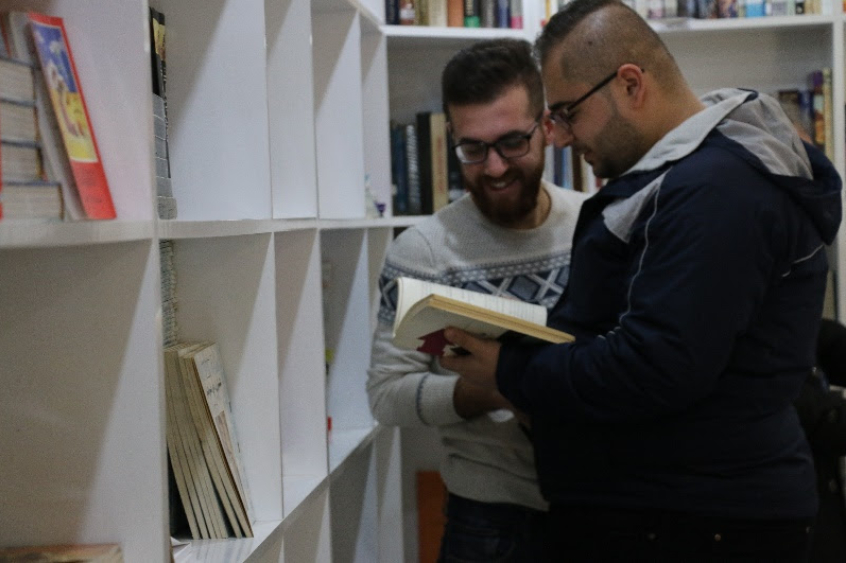
The library is part of the Christian centre for social and cultural activities in Qaraqosh. Seminars and art exhibitions are held at the centre, as well as Christian education and other church-related activities. The library has been named in honour of Fr Louis Qasab, widely known as a highly educated and loved priest from Qaraqosh.
According to a member of the church committee, Labib al Katib, the restored library will help to educate the younger generation: "I believe the library is very important for motivating people to read and become better educated. Despite huge destruction that still exists around us, people have already started to enquire about this library for their scientific research or studies. We worked hard to renovate it, to turn it into a centre where educated youth, authors, readers and students will get together."
The modern, spacious design of the library has a big and comfortable reading hall. The books' categories include old manuscripts, religion, science, fiction, politics and children's literature, and there are Arabic, English, French and German sections – around 650 books in total.
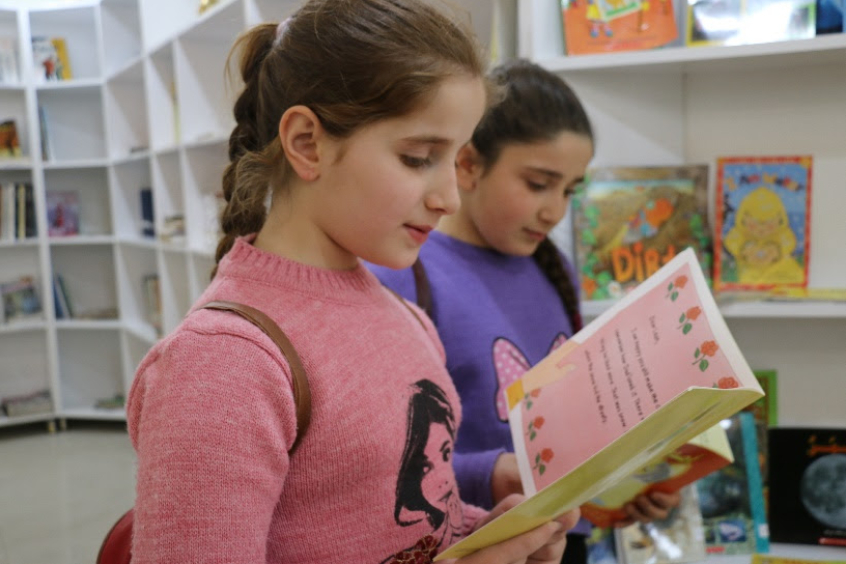
"We still lack books on philosophy, psychology and religion, as well as modern literature, novels and popular books," Fr Duraid said.
"We also need dictionaries and a bigger diversity of French and English books. Especially the latter, since we have a few families who came back from Europe to Qaraqosh after its liberation and their children got used to reading books written in English."
The next stage is to have access to the internet and digitalise the entire collection as well as to get online PDF books. The improved facilities will include computers and printers. The staff is planning to visit schools, promote the library and encourage teachers to hold reading competitions in order to motivate children and students to read more and make a full use of the library.
The town of Qaraqosh has the largest Christian population in the Nineveh Plains, Northern Iraq. According to local churches, over 5,100 Christian families have returned there since the restoration of the homes began.
Iraq is number 13 on the Open Doors' World Watch List, a ranking of 50 countries where it is most difficult to leave as a Christian.
Islamic extremism is still a problem in Iraq. Although the self-proclaimed Islamic State (IS) have lost territory in Iraq, their ideology remains. Many of the militants have simply blended back into the general population.
Many families who were forced to flee their homes by IS have been able to return to the Nineveh Plain and have begun to rebuild their lives and communities.









